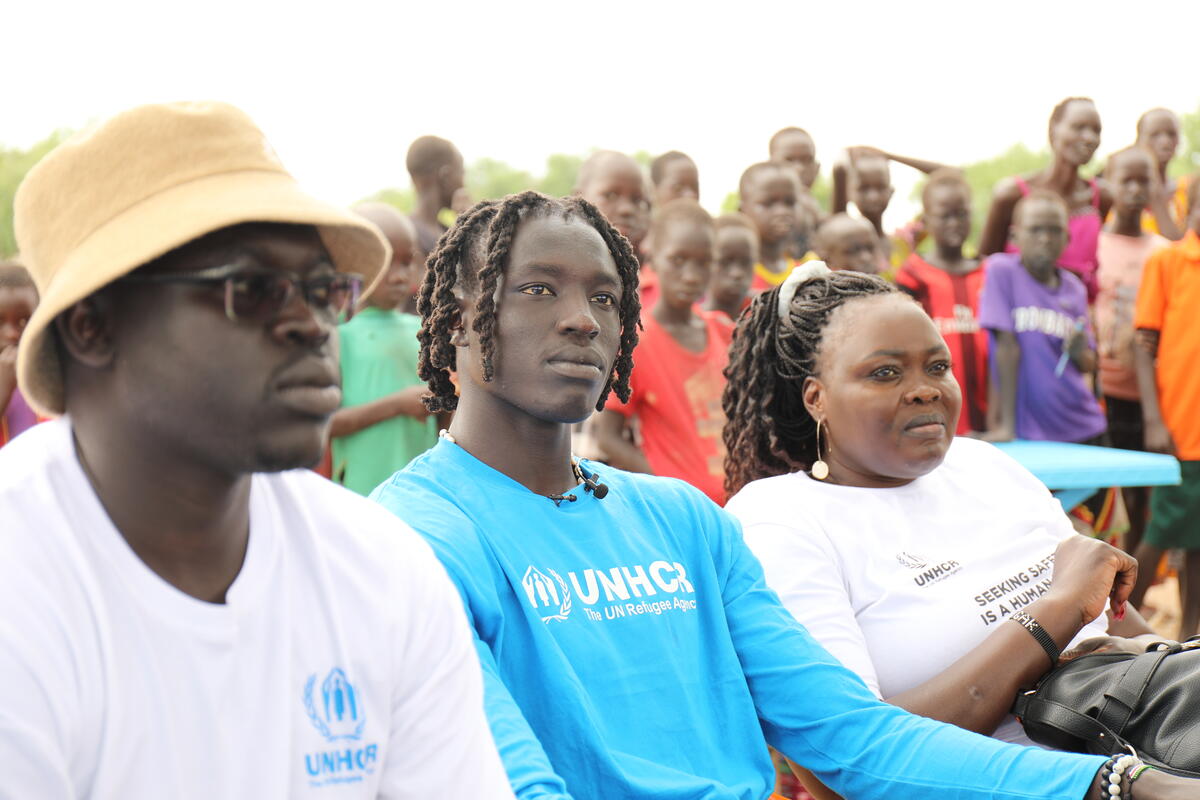UNHCR chief says only peace can provide solution for Sri Lanka's displaced
UNHCR chief says only peace can provide solution for Sri Lanka's displaced

COLOMBO, Sri Lanka, July 27 (UNHCR) - After meeting people displaced by Sri Lanka's long-running civil war, UN High Commissioner for Refugees António Guterres called on both sides to create conditions for hundreds of thousands of people to go back safely to their home areas and live in dignity.
"We want confidence to be built in all areas for people to return," Guterres said in the rebel-held northern area of Kilinochchi on Wednesday. "This must be based not just on words, but on actions."
More than 312,000 people have been displaced within the country since war erupted in 1983 between the government and the Liberation Tigers of Tamil Eelam (LTTE, or Tamil Tigers). The UN refugee agency assists about 67,000 displaced people in welfare centres throughout the country.
People should not have to live in camps for decades, Guterres said. "The only way to solve this is to create conditions for people to find a permanent solution for their lives," he said. In most cases this would mean returning to the areas they had fled and where they should be able to live in "full dignity," he said. Others should be helped to build lives where they have found refuge if that is what they prefer.
Guterres said UNHCR would like to do more to build confidence between citizens and the authorities to prevent displacement in the first place, to establish the right of displaced people to return home voluntarily, and to make sure Sri Lankans' human rights are respected.
The High Commissioner's three-day visit to the island state, which ended Thursday, was intended to underline that only peace can restore normal life for the country's many displaced people. A 2002 ceasefire between the government and the Tamil Tigers in 2002 has been left in tatters since April, when fighting flared again.
Stressing the need for a resumption of stalled peace talks, Guterres said: "We do believe that here there are a lot of people suffering and there is not enough attention paid to their suffering." He added that Sri Lanka's situation has now been overshadowed by the war in Lebanon.
Guterres said he also wanted to highlight the UN refugee agency's growing involvement with internally displaced people, who are refugees in all but name since they have not crossed an international border.
"Now it's clear that displaced people who suffer - independent of their legal status - must have the support of the international community," he said.
On Wednesday, Guterres flew by helicopter to four communities in northern, eastern and western Sri Lanka to hear at first hand the concerns of people displaced in the last decade and a half.
At Palaiyutu in the east, displaced Catholics from the country's Tamil minority told him they were afraid to go back to their village just four kilometres away, after fleeing communal violence in April. "Our houses were burned by mobs. Now we are unable to return," a young woman with a baby on her hip told Guterres.
"The government gave us food stamps and asked us to go back to our homes," another woman said. "But will they protect our lives?"
"Your communities lived together for centuries," the High Commissioner replied, referring to the Tamils and majority Sinhalese. "We have to restore conditions for them to live together again. We are looking for ways to rebuild confidence. We need to bring down the tension."
This group of 133 Tamil Catholics is living in temporary shelters on the grounds of a church, conditions Guterres called unacceptable. "We are sorry that you have to suffer in this situation and we hope to solve the problems so you can live in normal conditions," he said.
In another part of the country, Puttalam, he met Muslims who had been driven out of the north of the country in 1990. They told him that even after 16 years in this location, they still live uneasily with the locals.
Guterres also met Sri Lankan President Mahinda Rajapakse and representatives of the LTTE to discuss the UN refugee agency's planned activities in the country.
By Kitty McKinsey in Colombo, Sri Lanka









